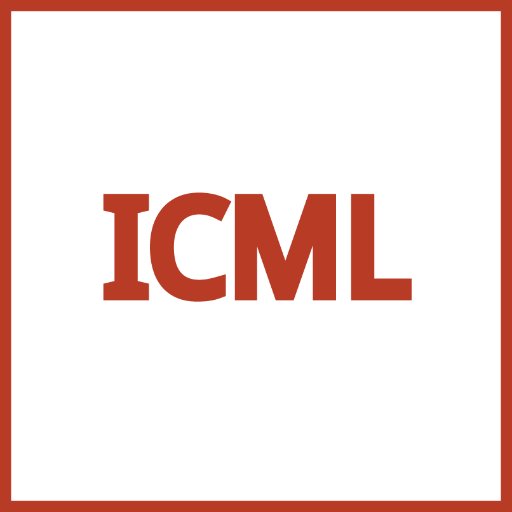
icml 2006 论文列表Machine Learning, Proceedings of the Twenty-Third International Conference (ICML 2006), Pittsburgh, Pennsylvania, USA, June 25-29, 2006. |
Efficient lazy elimination for averaged one-dependence estimators.
Statistical debugging: simultaneous identification of multiple bugs.
Block-quantized kernel matrix for fast spectral embedding.
Collaborative ordinal regression.
Active learning via transductive experimental design.
Null space versus orthogonal linear discriminant analysis.
Semi-supervised nonlinear dimensionality reduction.
Discriminative unsupervised learning of structured predictors.
Bayesian multi-population haplotype inference via a hierarchical dirichlet process mixture.
A duality view of spectral methods for dimensionality reduction.
Fast time series classification using numerosity reduction.
Predictive state representations with options.
Kernel Predictive Linear Gaussian models for nonlinear stochastic dynamical systems.
Inference with the Universum.
Totally corrective boosting algorithms that maximize the margin.
Two-dimensional solution path for support vector regression.
Label propagation through linear neighborhoods.
Topic modeling: beyond bag-of-words.
Accelerated training of conditional random fields with stochastic gradient methods.
Active sampling for detecting irrelevant features.
Clustering graphs by weighted substructure mining.
Probabilistic inference for solving discrete and continuous state Markov Decision Processes.
Bayesian regression with input noise for high dimensional data.
Fast and space efficient string kernels using suffix arrays.
Multiclass reduced-set support vector machines.
Iterative RELIEF for feature weighting.
Local Fisher discriminant analysis for supervised dimensionality reduction.
Full Bayesian network classifiers.
Experience-efficient learning in associative bandit problems.
PAC model-free reinforcement learning.
Bayesian pattern ranking for move prediction in the game of Go.
An investigation of computational and informational limits in Gaussian mixture clustering.
Classifying EEG for brain-computer interfaces: learning optimal filters for dynamical system features.
Feature subset selection bias for classification learning.
Deterministic annealing for semi-supervised kernel machines.
An intrinsic reward mechanism for efficient exploration.
Bayesian learning of measurement and structural models.
Permutation invariant SVMs.
Feature value acquisition in testing: a sequential batch test algorithm.
Cost-sensitive learning with conditional Markov networks.
Efficient inference on sequence segmentation models.
A statistical approach to rule learning.
Predictive linear-Gaussian models of controlled stochastic dynamical systems.
Sequential update of ADtrees.
Combining discriminative features to infer complex trajectories.
How boosting the margin can also boost classifier complexity.
Categorization in multiple category systems.
Quadratic programming relaxations for metric labeling and Markov random field MAP estimation.
Maximum margin planning.
CN = CPCN.
Constructing informative priors using transfer learning.
MISSL: multiple-instance semi-supervised learning.
An analytic solution to discrete Bayesian reinforcement learning.
The support vector decomposition machine.
Concept boundary detection for speeding up SVMs.
Reinforcement learning for optimized trade execution.
Learning hierarchical task networks by observation.
Online decoding of Markov models under latency constraints.
Learning to impersonate.
Generalized spectral bounds for sparse LDA.
Kernel information embeddings.
The uniqueness of a good optimum for K-means.
Learning high-order MRF priors of color images.
Pruning in ordered bagging ensembles.
Fast direct policy evaluation using multiscale analysis of Markov diffusion processes.
Combined central and subspace clustering for computer vision applications.
Spectral clustering for multi-type relational data.
Pachinko allocation: DAG-structured mixture models of topic correlations.
Multiclass boosting with repartitioning.
Region-based value iteration for partially observable Markov decision processes.
Nonstationary kernel combination.
Efficient MAP approximation for dense energy functions.
A probabilistic model for text kernels.
Using query-specific variance estimates to combine Bayesian classifiers.
Simpler knowledge-based support vector machines.
Local distance preservation in the GP-LVM through back constraints.
Learning low-rank kernel matrices.
Data association for topic intensity tracking.
Autonomous shaping: knowledge transfer in reinforcement learning.
Fast particle smoothing: if I had a million particles.
Pareto optimal linear classification.
Optimal kernel selection in Kernel Fisher discriminant analysis.
Personalized handwriting recognition via biased regularization.
Automatic basis function construction for approximate dynamic programming and reinforcement learning.
Estimating relatedness via data compression.
Hidden process models.
Ranking individuals by group comparisons.
Batch mode active learning and its application to medical image classification.
Looping suffix tree-based inference of partially observable hidden state.
Learning a kernel function for classification with small training samples.
An analysis of graph cut size for transductive learning.
Fast transpose methods for kernel learning on sparse data.
Practical solutions to the problem of diagonal dominance in kernel document clustering.
Connectionist temporal classification: labelling unsegmented sequence data with recurrent neural networks.
A choice model with infinitely many latent features.
Nightmare at test time: robust learning by feature deletion.
Kernelizing the output of tree-based methods.
The rate adapting poisson model for information retrieval and object recognition.
A note on mixtures of experts for multiclass responses: approximation rate and Consistent Bayesian Inference.
Regression with the optimised combination technique.
Online multiclass learning by interclass hypothesis sharing.
Qualitative reinforcement learning.
A graphical model for predicting protein molecular function.
Clustering documents with an exponential-family approximation of the Dirichlet compound multinomial distribution.
R1-PCA: rotational invariant L1-norm principal component analysis for robust subspace factorization.
Learning user preferences for sets of objects.
Efficient learning of Naive Bayes classifiers under class-conditional classification noise.
Learning the structure of Factored Markov Decision Processes in reinforcement learning problems.
Collaborative prediction using ensembles of Maximum Margin Matrix Factorizations.
Discriminative cluster analysis.
The relationship between Precision-Recall and ROC curves.
Locally adaptive classification piloted by uncertainty.
Dealing with non-stationary environments using context detection.
Learning algorithms for online principal-agent problems (and selling goods online).
Trading convexity for scalability.
A regularization framework for multiple-instance learning.
A continuation method for semi-supervised SVMs.
Hierarchical classification: combining Bayes with SVM.
Robust Euclidean embedding.
An empirical comparison of supervised learning algorithms.
Fast nonparametric clustering with Gaussian blurring mean-shift.
Semi-supervised learning for structured output variables.
Efficient co-regularised least squares regression.
Learning predictive state representations using non-blind policies.
Predictive search distributions.
Edwin V. Bonilla Christopher K. I. Williams Felix V. Agakov John Cavazos John Thomson Michael F. P. O'Boyle
Dynamic topic models.
Graph model selection using maximum likelihood.
Cover trees for nearest neighbor.
Convex optimization techniques for fitting sparse Gaussian graphical models.
On Bayesian bounds.
On a theory of learning with similarity functions.
Agnostic active learning.
A new approach to data driven clustering.
Relational temporal difference learning.
A DC-programming algorithm for kernel selection.
Robust probabilistic projections.
Ranking on graph data.
Higher order learning with graphs.
Algorithms for portfolio management based on the Newton method.
Using inaccurate models in reinforcement learning.

